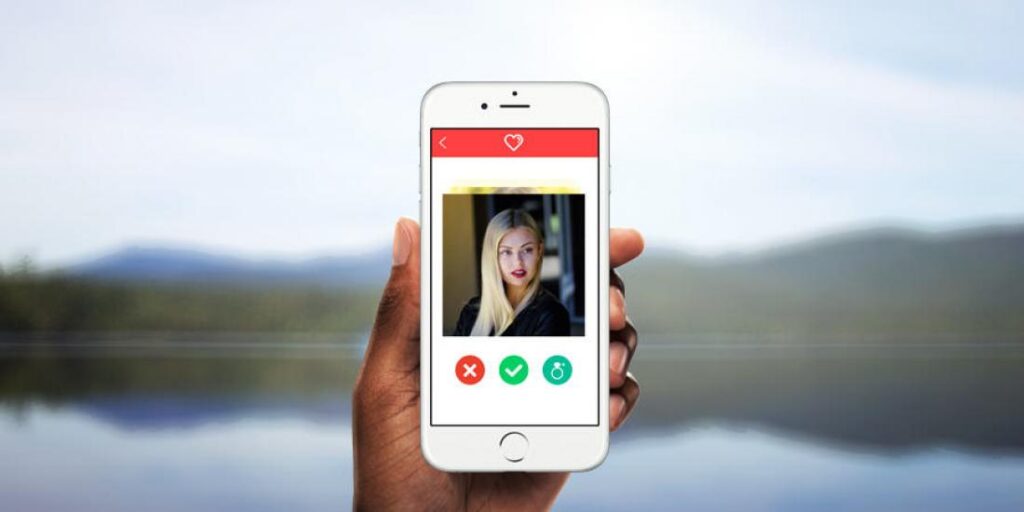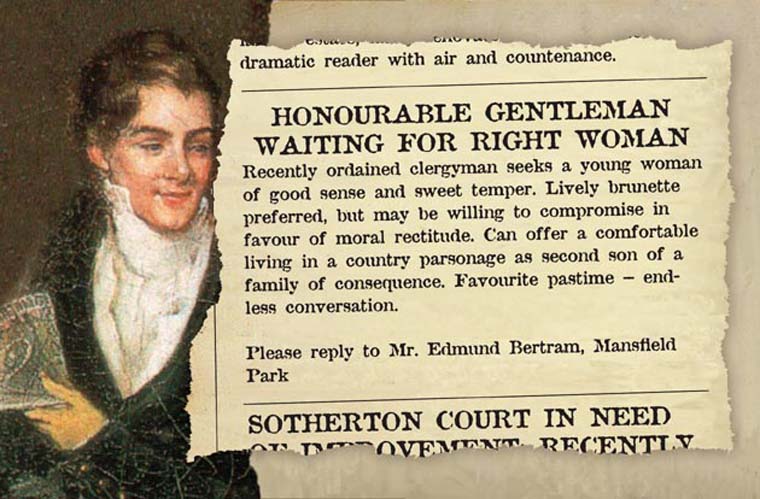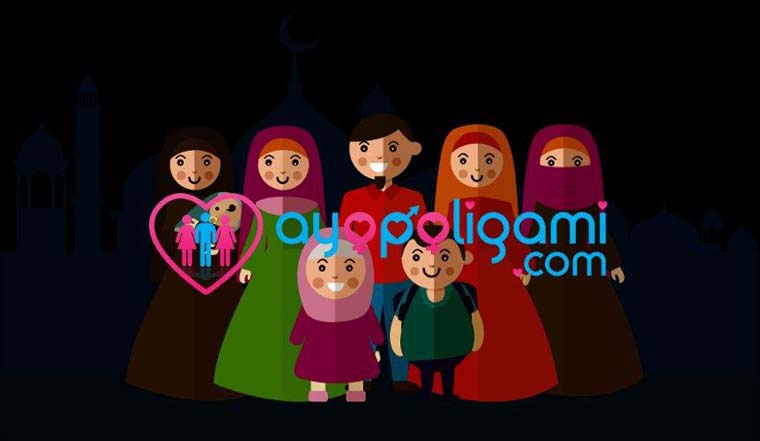
Dating apps enable us to do things we have never done before and are now often created to fit into a specific (sub)culture. This article discusses several dating apps using theories regarding globalization.
History of dating
The famous opening line of Jane Austen’s (1813) classic book ‘Pride and Prejudice’ runs as follows: “It is a truth universally acknowledged that a single man in possession of good fortune must be in want of a wife.” The expressed sentiment illustrates that the characters in the book, like most people, are much occupied with finding a partner, to attain things like love, stability or security.
A partner in the time of Jane Austen was usually handpicked or at least approved of by the parents. If you disagreed with your parents’ choice, or if your parents were unable to find you a partner, you would have to either accept your fate, or find different ways to look for someone.
The rise of newspapers created a solution for this problem, with their personal advertisements section, the analogue version of dating websites. It is estimated that the first personal ad was placed around the end of the 17th century and its popularity really took off in the early 18th century. However this does not mean it was a socially acceptable way of looking for a spouse. It was seen as a last resort for people with no other means of finding someone, for instance because they had no family of parents to arrange their matrimony (Cocks, 2009). The first woman to ever place a personal ad was Helen Morrison. She was even sent to an asylum by the government for four weeks, for it was believed she was mentally unstable.
Helen Morrison was sent to an asylum by the government because she placed a personal ad in the Manchester Weekly journal

A century later society had changed and placing a personal ad had become acknowledged as a reasonably normal way to get in touch with potential partners. Actually, personal ads were no longer merely used to find a husband or wife, but also to simply look for companionship. Soldiers fighting abroad during a war used personal ads to look for pen pals for instance. Despite the popularity, or because of, there also remained critics, who often worried about the morality of such ads (Cocks, 2009). It is said homosexual men and women used code words to place personal advertisements looking for likeminded people, but also for unhappily married people for whom divorce was impossible, the personal ads were a much desired way out, and of course, much like in online dating nowadays, there were people who posed as someone else, in an attempt to scam or rob people, or use them in other ways.
Looking for that special someone or companionship became a lot easier at the end of the 20th century with the invention and widespread adoption of the newest technological development: the internet.
Online dating apps
As stated before dating websites are basically the modern variant of personal ads. With the introduction of the internet in the 1990’s more and more people started placing their personal ads on websites instead of in newspapers and magazines. Dating agencies created websites to which people could subscribe (usually for a membership fee) to get suggestions on possible partners based on certain algorithms and the extensive questionnaires they had to fill in. With the introduction of smartphones and their applications (apps) online dating became even easier, and more importantly, more socially accepted. A research from 2015 by the BBC showed that the dating app Tinder was the 10th most popular lifestyle app in Canada that year and the 15th most popular one in the US.
That same research showed that Badoo and Tinder are the most popular dating apps worldwide, Badoo being number one in 21 countries and Tinder in 18. So because of technology something that used to be seen as something that was a bit ‘shady’ or a desperate last resort, became something socially accepted and common behaviour.
Tinder and Badoo are easily accessible apps and can be used by anyone, no matter your gender, age or sexual preferences, but there is more to find in the world of dating apps than just Tinder and Badoo. There are dating apps that focus on smaller communities, trying to connect people on certain common values or interests, for instance marginalised groups like homosexuals, ethnic minorities, but also elite groups, millionaires or extremely successful businessmen and -women. In deciding which dating app to subscribe to, users choose which part of their identity they want to emphasise in their dating life. Dating apps have created a new online culture, making people do things they have never done before, like creating a number of online personas, all different depending on the medium they are using.
The amount of and diversity in dating apps has expanded immensely over the last few years. There are for instance dating sites you can only subscribe to if you have attained a certain educational level, or look a certain way. In the US you can subscribe to www.trumpsingles.com or www.berniesingles.com to meet people with the same political views as you (dating website for Donald Trump supporters and Bernie Sanders supporters). Just a little search on the internet will give you many different kinds of dating apps, such as dating apps for dog-owners, for beard-owners and beard lovers, and apps created by existing organizations, such as a meat company launching a dating app for meat lovers. It seems that dating apps try to come up with more and more unique subgroups to supply to everybody’s demands. The niche dating apps illustrate Appadurai’s (1996) theory regarding the local effects of globalization: they make a global phenomenon like online dating more local by focusing on one specific (sub)culture or community.
I will now discuss a few different dating apps in a more detailed way to see what their aim is, who they’re aimed at and how they use specific values or interest to attract people from the same community. I start with Tinder, the most popular app in western countries, and then move on to three dating apps that are more at the margins, The Leage, AyoPoligami and TrulyMadly.
Tinder
Tinder started in September 2012 as the first dating app featuring the swipe mechanism. Tinder uses your geographical position to find other singles in your neighbourhood and shows you their profiles which consist of a picture, a name, age and distance. Based on this information, you can either swipe the profile to the right if you like them or to the left if you don’t. Only people whose profile you liked and liked you back become a match, which enables the chat function.
Tinder empowers users around the world to create new connections that otherwise might never have been possible.
Tinder is the most downloaded dating app in 18 countries so together with Badoo it is the most popular dating app in the world. According to their website, Tinder’s aim is: ‘to bring people together’. This probably refers to the other novelty Tinder introduced in the online dating world: the matches you see are based on geographical distance, so you can see instantly which people are in your neighbourhood. Whereas dating sites before Tinder used special algorithms to match people with similar interests, Tinder has an easier method by only using gender, age and distance as factors. Tinder is more user-friendly and approachable, and its popularity shows us it is also socially accepted. Tinder shows us how identities can be formed in this era of globalization, users create their own profiles, so they can choose how they want to appear to others. They can choose their own identity.
t is now common to view Tinder as a ‘hook-up app’ instead of a dating app, however this is not always the case. A recent research by Sumter, Vandenbosch and Ligtenberg in 2017 concluded that there were six different motivations to use Tinder: Love, Casual Sex, Ease of Communication, Self-Worth Validation, Thrill of Excitement, and Trendiness. These motivations are strongly related to the age and gender of the user. They concluded that: “…Tinder should not be seen as merely a fun, hookup app without any strings attached, but as a multifunctional tool that satisfies various needs among emerging adults.” (Sumter, Vandenbosch & Ligtenberg 2017).
The League
After the rise in popularity of applications like Tinder and Badoo, an immense number of dating apps arose, all trying to be unique by focusing on one specific group of people. The League, launched in January 2015 in San Francisco, and later that year in New York, is a very good example. It is a popular example as well since in 2017 the application already had a waiting list of 183.000 people and this year the creator introduced the app in a third city: London. Danielle Bradford, the founder of the app said it is her aim to match tons of power couples and in several media it has been called the ‘Tinder for elites’.
Luxy used the phrase ‘Tinder minus the poor people’ in a press release introducing the app and is aimed exclusively at millionaires.
The novelty of this app, and possibly also a reason for its popularity, is that it is very selective in its users. People are not able to simply install the app and start using it, one has to apply and fill in a questionnaire after which they are placed on a waiting list. People on this list will go through a strict selection procedure and based on its outcome someone will be granted access to the app, or stay on the waiting list. On which aspects the selection procedure is based is a secret, which probably increases people’s curiosity and thereby the number of people on the waiting list. What is known, is that the app-creators not only use your Facebook account for information, but also your LinkedIn page. With this strategy The League positions itself as a dating app for business people. This positioning becomes clear in many different ways:
- The lay-out of the app is very straightforward and business-like, almost like LinkedIn.
- It uses LinkedIn to see if someone’s career and education have been successful or special enough to be able to join The League
- It takes away any worries users might have regarding this fact by promising to make their account invisible for their co-workers and bosses.
- Instead of ‘unmatching’ people, like in Tinder, users can ‘expire’ matches (as if they were contracts).
- Users have happy hour: they only get 5 matches per day at 5pm.
- Demographic research among its users has also shown that the majority of the users work in Business or IT.
With this strategy the League seems to create a micro-hegemony, people want to be seen as succesfull businessmen or -women so they want to have The League dating app as a confirmation. Other dating apps are even more selective, and are not as secretive about their selection criteria. Dating app Luxy for instance is aimed specifically at millionaires. Users are only allowed if they have a specific income.
AyoPoligami

The very young app AyoPoligami has already received a lot of (international) attention due to a controversy it caused. It is an Indonesian dating app very obviously aimed at a specific segment of the population. It was launched in April 2017 because the creators wanted to provide an online platform where people could be honest about their polygamy and where men and women who consent to polygamous marriages could find each other in a transparant and safe environment. It was taken offline not long after its launch and relaunched in October 2017 with some adjustments. Now all men who want to register: “will need to provide a valid identification card, disclose their marital status and provide a letter of permission from their first partner that they allow them to remarry” said creator Lindu Cipta Pranayama to The Guardian.
A dating app in Gaza matches widows to polygamous men who are in want for a second or third wife.
To be able to understand why there would be a need to create such an app, one should first know the history of polygamy in Indonesia. Polygamy is legal, but very much taboo. The majority of the Indonesian population is Muslim, and some forms of Islam allow polygamous marriages, therefore it is a law in Indonesia that men can marry up to four wives, as long as they can financially provide for them and the first wife consents to this arrangement. However, the law has not gone unchallenged. In the past 20 years there have been many protests organised by women to convince the government to change this law, but up to now it has stayed intact.
AyoPoligami wants to make it easier for people who support polygamous marriage to look for partners. The dating app makes sure the law is adhered to by asking men for consent of their first wife and have extensive ways to verify every account. The members are also obliged to meet potential partners within a week and dating is not allowed; instead the app provides an online ‘taaruf’, i.e. an Islamic process through which the couples get to know each other under supervision. AyoPoligami is not the only polygamous app however. A similar dating app has been launched in Gaza this year, which matches widows to men seeking a second or third wife.
TrulyMadly
TrulyMadly, finally, is a dating app created in India. In its usage it resembles Tinder the most, compared to the dating apps previously discussed. The biggest difference between the two dating apps is probably noticeable in their marketing strategies. Whereas Tinder is universally known and marketed as a dating app, easy to enter and easy to use, the creator of TrulyMadly was a bit more hesitant to call it a dating app and preferred ‘matchmaking site’ during the introduction in 2014. Now, some years later, they have carefully changed their identity to the safe and trustworthy ‘dating app’.
To understand this hesitance and to comprehend how people in India view and deal dating apps, it is important to understand the historical and cultural context. For many generations, arranged marriages were the only commonly accepted ways of matchmaking in India. After the technological developments that led to the internet, online matchmaking quickly became a common phenomenon as well. Parents of single men and women used matrimonial websites such as shaadi.com where they could make profiles for their single family members to find a husband or wife. In recent years the values of young Indian people have started to shift from those of their parents and the desire to be able to choose their own partner became stronger. That is why TrulyMadly is aimed mostly at singles between the ages of 18 and 25, when the desire to make choices independently from parents is likely to be strongest.
TrulyMadly, however, is eager to prove they are different from Tinder by demanding more effort from their users. They not only ask for your Facebook account, but users need to verify in several ways, also with a phone number, to avoid fake profiles. Users are also requested to fill in extra questionnaires so that the application can find other users that match your interest and meet your demands and also to make sure the user has the right intentions for joining the dating community. While the focus of TrulyMadly is not on marriage, like on matrimonial websites, it obviously wants to distance itself from the ‘hook-up’ culture and wants to be a dating app Indian parents can approve of, by incorporating features of Indian culture to some extent.
The local and the global in dating apps
Personal ads and dating apps fit neatly into Castell’s (2010) theory of ‘the rise of the network society’because they are media for people who don’t fit the identity given to them by their family or environments and instead chose to form a new identity for themselves and look for a partner that would match that identity. Personal ads, dating apps and especially niche dating apps give these opportunities to marginalized people (homosexuals, ethnic minorities, women etc.) and to people with other than ordinary wants and needs. Dating apps are also clearly part of this new era of globalization, because people can create their own chosen identity in new ways, giving them a chance to do things they have never done before.
On the basis of the analysis of these four apps and online dating in general it is obvious that dating apps have become common in a range of different cultures, and they are all finding possibilities with regard to online dating that fit with local cultural values. As a user you can use niche dating apps to choose which part of your identity you want to show in online dating, such as your cultural values, your religion or your special passion.
source: https://www.diggitmagazine.com/articles/online-dating-apps
